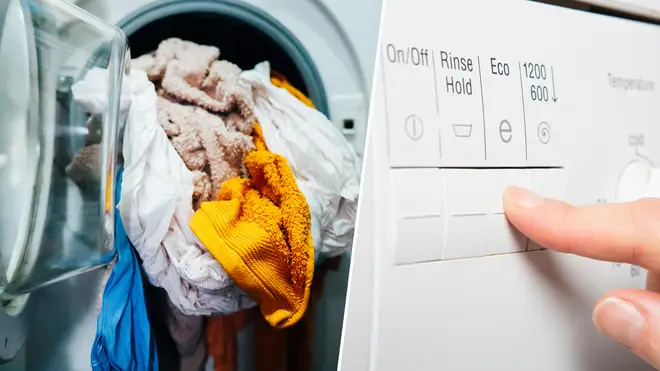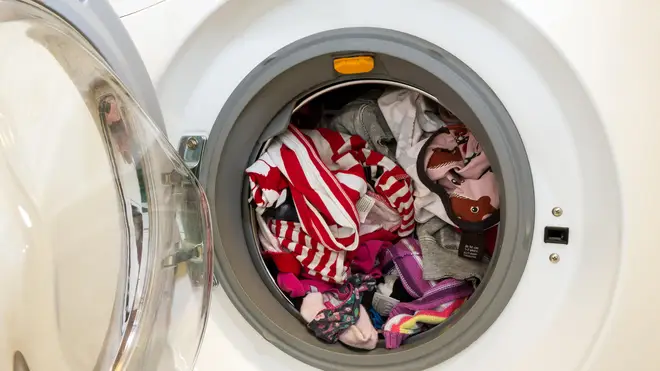When to avoid using your washing machine to cut your energy bills
4 April 2022, 12:08 | Updated: 5 April 2022, 10:48

There is a simple way to reduce your energy bills by not using it at certain times.
Listen to this article
Households across the UK are facing a huge increase in their monthly energy bills after the price cap was increased last week.
And with families looking for new ways to reduce their outgoings, experts have revealed the best time to put on your washing machine.
In fact, it has now been revealed that the most expensive time to run your washing machine is between 4pm and 7pm.
- Major energy supplier is giving away free electric blankets to customers
- Shower or bath? Experts reveal cheaper option amid bills rising
- 'My mother-in-law paid for my wedding and now she wants to come on my honeymoon’

How can you try to keep energy bills down?

A washing machine uses around 1kWh of energy for an hour-long wash, which means that if you do one load a week, it costs around £14.56 a year.
Meanwhile, if you do two loads a week, it would cost you £29.12 a year.
But some energy providers charge more for power during busy periods, with off-peak power costing as little as 9.76, compared to prime-time prices of around 28p.
So if you want to avoid paying up to three times as much to wash your clothes, you should probably avoid 4pm-7pm.

Author reveals washing towel hack in TikTok clip
This comes as millions of households face around a £700 increase per year to their energy bills.
On April 1st, the Ofgem price cap was increased from £1,277 to £1,971 per year.
Some energy firms have been trying to help out their customers, with British Gas and
Octopus setting funds to help customers who are struggling with their bills.
British Gas announced last week that it has put an extra £2million aside to the help customers.

Octopus energy is also sending out 5,000 heated blankets to help families keep warm.
If you are a customer, you can apply by filling out an online assistance tool.
Chief executive Greg Jackson said the 'sad reality' is that many people lost their jobs during the pandemic and are now struggling.
He told our sister station LBC: “Where people do their very best, companies like ours will work with them to get payment plans in place, to provide some assistance, to work with them on their whole income and expenditure.”


























